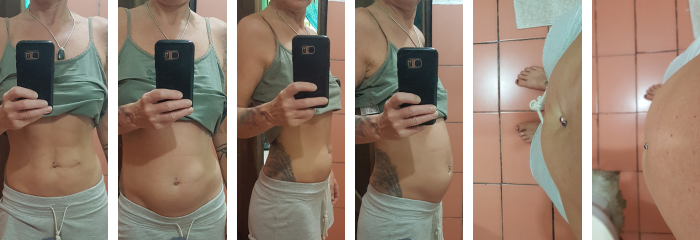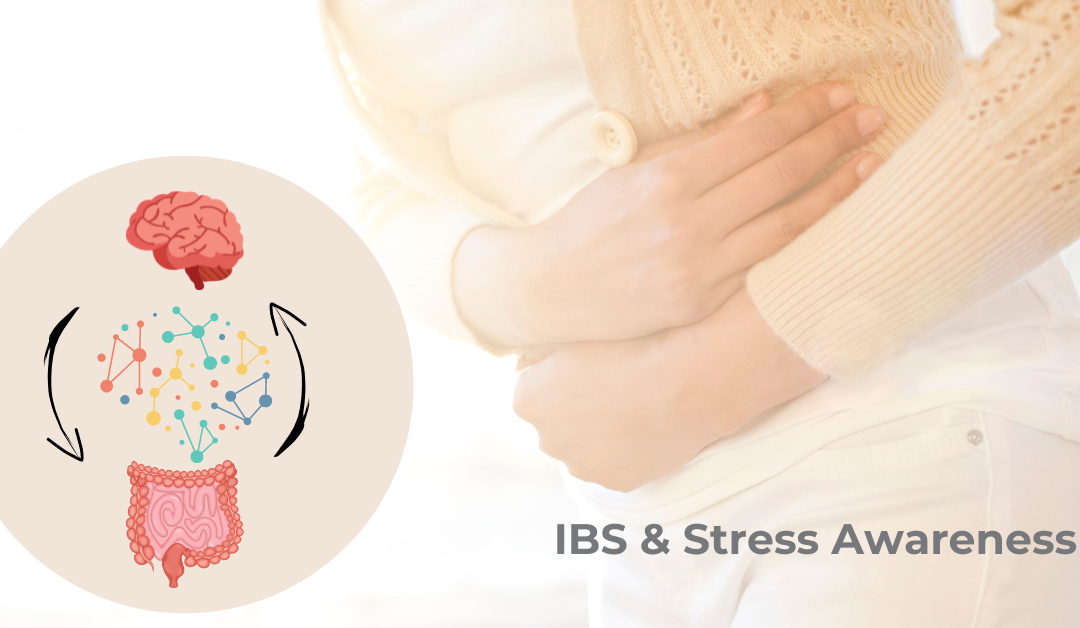Discover effective tips for managing IBS symptoms and improving your digestive health.
For IBS and Stress Awareness Month, I’m sharing top tips for managing irritable bowel syndrome (IBS) and helping to raise awareness and understanding of this common digestive disorder. As someone who has been living with IBS for the past 15 years, I feel it’s important to share my experience and encourage others to seek help if they are experiencing similar symptoms.
My Personal Journey with IBS and IBD
After undergoing resection surgery to remove a diseased section of my bowel caused by Crohn’s disease, I experienced a quick return of symptoms. Despite undergoing numerous tests and consultations with specialists, there was insufficient evidence of Crohn’s disease to explain the symptoms. Eventually, I was diagnosed with both IBS and inflammatory bowel disease (IBD). At first, I was sceptical of the IBS diagnosis as it seemed like a catch-all for unexplained digestive symptoms, but I soon discovered the real impact of this condition on my daily life.
Over time, I learned to differentiate between the subtle differences in symptoms between Crohn’s disease and IBS. For me, IBS pain tends to occur higher in my abdomen, can be accompanied by nausea and causes more severe bloating which often starts during meals and lasts for hours. In contrast, Crohn’s disease is more exhausting, the pain is more severe and can make it incredibly difficult to enjoy food or have a positive relationship with eating, since it is often accompanied by intense pain, frequent trips to the bathroom and weight loss. Although both conditions can cause diarrhoea, I find it more severe with Crohn’s disease.
Living with IBS and IBD has had a significant impact on my mental health. The unpredictable nature of the conditions and the constant worry about symptoms can cause anxiety and stress. It’s essential to address not just the physical symptoms but also the emotional toll that these conditions can have on a person’s well-being.

These photos are 12 hours apart and show the extent of bloating. It can easily add 3 inches to my waistline, come on in as little as 20 minutes and take hours to dissipate. Bloating can be incredibly uncomfortable and even painful, making it difficult to focus on anything else.
Making Connections Between Symptoms, Diet and Lifestyle.
Exploring the connection between my diet and IBS symptoms, I identified patterns with certain foods like dairy, gluten, and starchy carbs. However, I soon realized stress levels heavily influenced my symptoms. To manage IBS, I focused on stress management alongside dietary changes. As a former high-stress IT worker, taking a career break to focus on my health was tough but necessary to manage my symptoms. Over the past 15 years, I have continued to explore the role that diet, lifestyle, and mindset play in digestive health.
IBS and IBD: Similarities, Differences, and How Stress Plays a Role
Living with both Crohn’s disease, a type of inflammatory bowel disease (IBD) and IBS presents a unique challenge. Although these conditions can share similar symptoms, they have distinct differences in their underlying causes and treatments. Crohn’s disease is an auto-inflammatory condition that triggers inflammation and ulcers in the digestive tract. It is considered a more serious and potentially life-threatening condition compared to IBS. IBS, on the other hand, is a functional gastrointestinal disorder that affects muscle contractions in the intestines. This can lead to symptoms such as bloating, constipation, and diarrhoea, but it does not increase the risk of developing serious complications as Crohn’s disease does.
Despite their differences, both Crohn’s disease and IBS can be triggered or worsened by stress. When we are stressed, our body produces stress hormones such as cortisol and adrenaline, which can have a direct impact on the digestive system. Stress can cause the muscles in the intestines to contract more rapidly or slowly than usual, leading to digestive issues such as constipation or diarrhoea. Additionally, stress can alter the balance of gut bacteria, which can impact digestion and contribute to inflammation.
Take Control of Your IBS: Step-by-Step Strategies
Living with IBS can be challenging, but there are many ways to manage symptoms and improve your quality of life. This section outlines step-by-step advice and tips for managing IBS, starting with stress management techniques and lifestyle changes. It then moves on to dietary interventions, including following a low-FODMAP diet and incorporating supplements to manage symptoms. Each section is designed to provide you with detailed, actionable advice for managing your IBS symptoms. By following these steps, you can develop a personalized plan that works for you and helps you feel your best.
Relax Your Way to Relief: Stress Management Strategies for IBS Sufferers
Managing stress is essential for managing both Crohn’s disease and IBS. Here are some steps you can take to manage stress:
- Practice relaxation techniques: Deep breathing, meditation, or yoga can help you relax and reduce stress. Find a quiet space where you can sit or lie down comfortably and focus on your breath. You can sign up for my Breathwork course to get started.
- Exercise regularly: Exercise is a great way to reduce stress and improve overall health. Aim for at least 30 minutes of moderate exercise, such as walking or cycling, most days of the week.
- Get enough sleep: Getting enough sleep is crucial for managing stress and maintaining good health. Aim for 7-8 hours of sleep per night, and establish a regular sleep routine by going to bed and waking up at the same time each day.
- Prioritise Self-Care: Self-care can include things like taking a relaxing bath, spending time in nature or engaging in a hobby you enjoy. Remember, taking care of yourself is not selfish, it’s essential for your health and well-being.
Are you stressed? Do you want to check your stress levels? Visit The Stress Management Society website and take part in their Individual Stress Test.


Managing IBS Through Diet
Diet plays a significant role in managing IBS symptoms. Here are some steps you can take to manage your diet:
- Eat smaller, more frequent meals: Eating smaller, more frequent meals throughout the day can help prevent IBS symptoms. Aim for 5-6 small meals per day instead of 3 large meals.
- Avoid trigger foods: Certain foods may trigger IBS symptoms in some people. Common trigger foods include spicy or fatty foods, caffeine, alcohol, and dairy products. Keep a food diary to identify your trigger foods and avoid them as much as possible.
- Increase fibre intake gradually: Fiber can help regulate bowel movements and prevent constipation, but too much fibre too quickly can worsen IBS symptoms. Increase your fibre intake gradually, and aim for 25-30 grams of fibre per day.
- Drink plenty of water: Drinking plenty of water can help prevent constipation and promote healthy digestion. Aim for at least 8 cups of water per day.
- Consider following a low-FODMAP diet: A low-FODMAP diet involves avoiding high-FODMAP foods for a period of time, then gradually reintroducing them to identify individual trigger foods. If you’re struggling with IBS symptoms, don’t hesitate to reach out to me for guidance. Together, we can create a low-FODMAP meal plan that works for you.
Managing IBS With The Help Of Supplements
Getting proper nutrition is essential for managing IBS symptoms and supporting overall digestive health. While dietary changes can be highly effective for some people, it can be challenging to get all the nutrients you need from food alone. That’s where supplements can be helpful, providing additional support to optimize digestive function or relieve uncomfortable symptoms.
As a certified Nutritionist, I recommend working with a healthcare professional to develop a personalised approach that combines dietary changes with targeted supplements for optimal results. With the right combination of diet and supplements, you can achieve lasting relief from IBS symptoms and feel your best. Popular approaches include:
- Take probiotics: Probiotics can help improve gut health and reduce symptoms like gas and bloating. Choose a high-quality probiotic supplement that contains a variety of strains.
- Use peppermint oil: Peppermint oil can help relax the muscles in the digestive tract, reducing symptoms like bloating and abdominal pain. Look for enteric-coated peppermint oil capsules, which deliver the oil directly to the intestines.
- Try psyllium: Psyllium, a type of soluble fibre, can help regulate bowel movements and relieve constipation. Start with a small dose and gradually increase as tolerated.
- Consider digestive enzymes: Digestive enzymes can help break down food and improve digestion, reducing symptoms like bloating and gas.


Remember that we are all fabulously unique, and what works for one person may not work for another. While these tips can provide guidance, we all need to determine our own personal solutions for managing stress and taking care of ourselves. It’s important to listen to our bodies, prioritize our needs, and find what works best for us.
As a nutritionist and breathwork coach, I understand the importance of diet and lifestyle changes in managing digestive health. I have spent the past 15 years exploring the role that diet, lifestyle, and mindset play in digestive health, and I’m here to help you come up with a personalized plan to manage your IBS symptoms. Let’s work together to identify triggers, create a healthy meal plan, and incorporate stress-reducing techniques like breathwork to help manage your symptoms and improve your overall well-being.
IBS Awareness Month is an opportunity to raise awareness about the challenges of living with IBS and to provide tips for managing IBS. By incorporating stress management, dietary interventions, and supplements into your treatment plan, you can find relief from IBS symptoms and improve your quality of life.
Are You Ready to Change Your Gut Story?
You don’t have to manage this alone. Take the first step to feeling better today.



